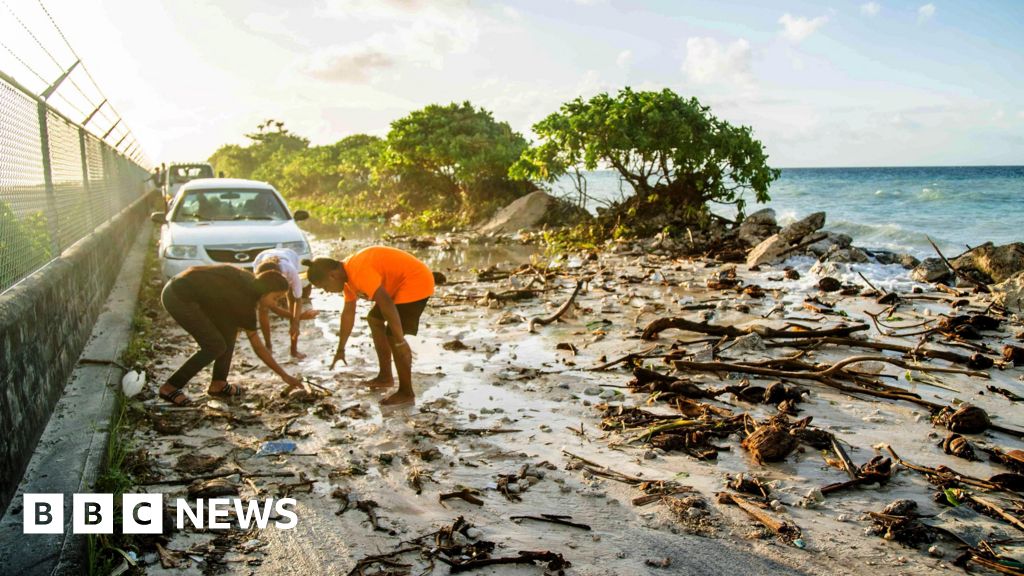Science
UN Court Empowers Nations to Pursue Climate Change Lawsuits

A pivotal ruling from the International Court of Justice (ICJ) has established that nations can initiate legal action against each other regarding climate change, particularly concerning historical emissions of greenhouse gases. Delivered on March 27, 2024, by Judge Iwasawa Yuji in The Hague, Netherlands, the decision, while non-binding, signifies a potential shift in international climate accountability.
The court’s judgment is viewed as a significant win for countries vulnerable to climate change, many of whom have expressed frustration with the slow pace of global action to combat this pressing issue. The case stems from a proposal by a group of young law students from low-lying Pacific island nations, who advocated for this legal recourse starting in 2019.
“This is a victory not just for us but for every frontline community fighting to be heard,” said Flora Vano, a representative from Vanuatu, which ranks as one of the most exposed nations to extreme weather events. The ICJ’s recognition of the struggles faced by such communities has been hailed as a landmark moment.
Implications of the Ruling
The court’s opinion could have far-reaching consequences. Legal experts anticipate that it might facilitate compensation claims from nations that have historically contributed the most to global warming. Many developing countries supported the case out of a sense of urgency, arguing that wealthier nations have failed to uphold commitments made in existing climate agreements, including the landmark Paris Agreement of 2015.
Developed nations, including the United Kingdom, contended that existing frameworks were adequate and opposed any new legal obligations. However, the ICJ rejected this stance, asserting that nations must develop ambitious plans to address climate change or risk breaching their commitments under the Paris Agreement.
Judge Iwasawa clarified that international environmental law applies broadly, indicating that even countries not party to the Paris Agreement, such as the United States, are still obligated to protect the climate system.
Potential for Future Legal Actions
Although the ICJ’s ruling is advisory, it may influence future governmental actions, as seen in past cases where ICJ opinions were implemented. For instance, the UK agreed to return the Chagos Islands to Mauritius following a previous ICJ decision.
The ruling has been described as a “watershed legal moment” by Joie Chowdhury, Senior Attorney at the Centre for International Environmental Law. She emphasized that the ICJ’s historic affirmation empowers those suffering from climate devastation to seek remedies, including compensation for damages.
The court determined that developing nations have the right to seek damages for climate change impacts, such as destruction of infrastructure. However, claims must be substantiated on a case-by-case basis, particularly when linking specific weather events to climate change.
While the exact financial implications of such claims remain uncertain, previous analyses have indicated staggering losses attributed to climate change, estimated at $2.8 trillion from 2000 to 2019, or approximately $16 million per hour.
As countries navigate the aftermath of this ruling, the global landscape of climate accountability may be poised for transformation, with vulnerable nations gaining a stronger voice in the fight against climate change.
-

 Entertainment2 months ago
Entertainment2 months agoIconic 90s TV Show House Hits Market for £1.1 Million
-

 Lifestyle4 months ago
Lifestyle4 months agoMilk Bank Urges Mothers to Donate for Premature Babies’ Health
-

 Sports3 months ago
Sports3 months agoAlessia Russo Signs Long-Term Deal with Arsenal Ahead of WSL Season
-

 Lifestyle4 months ago
Lifestyle4 months agoShoppers Flock to Discounted Neck Pillow on Amazon for Travel Comfort
-

 Politics4 months ago
Politics4 months agoMuseums Body Critiques EHRC Proposals on Gender Facilities
-

 Business4 months ago
Business4 months agoTrump Visits Europe: Business, Politics, or Leisure?
-

 Lifestyle4 months ago
Lifestyle4 months agoJapanese Teen Sorato Shimizu Breaks U18 100m Record in 10 Seconds
-

 Politics4 months ago
Politics4 months agoCouple Shares Inspiring Love Story Defying Height Stereotypes
-

 World4 months ago
World4 months agoAnglian Water Raises Concerns Over Proposed AI Data Centre
-

 Sports4 months ago
Sports4 months agoBournemouth Dominates Everton with 3-0 Victory in Premier League Summer Series
-

 World4 months ago
World4 months agoWreckage of Missing Russian Passenger Plane Discovered in Flames
-

 Lifestyle4 months ago
Lifestyle4 months agoShoppers Rave About Roman’s £42 Midi Dress, Calling It ‘Elegant’









